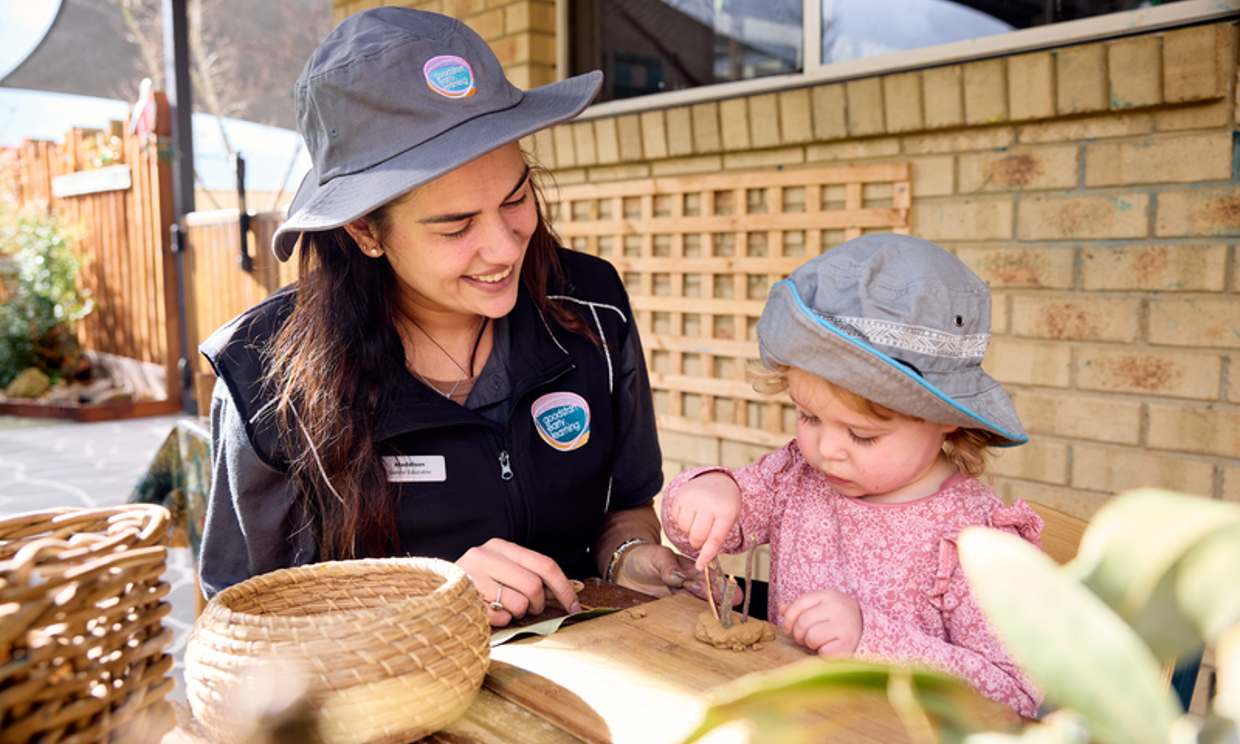As parents, we all want our children to grow up well, enjoying success at work and in life. But with high-quality early learning straining family budgets, we often wonder if it’s worth the cost.
Parents play a crucial role in setting children up for success in the first five years and shaping their developing brains. But at no point in history have our lives been busier and more filled with distractions and priorities than now, and parents have arguably the most challenging job on the planet.
Providing the right opportunities to nurture young minds and lay the foundations for future success isn’t easy. The ace up the sleeve for many parents is a partnership with a quality early learning provider who knows exactly what it takes to provide the best educational experiences in these critical early years.
Why do the first five years matter so much?
The first five years see incredible brain development occur, and the breadth of a child’s early experiences is more influential on their ability to learn than where they live or even your occupation or education.
It’s a critical time when their rapidly developing brains are ripe for learning, and recent research suggests that up to 90% of brain development has already occurred before a child starts primary school.
The amount and nature of stimulation and nurturing children receive in these years makes all the difference, and that’s why access to quality early learning is so important.
In a nutshell – the first five years matter a lot.
The evidence shows the difference early learning makes
Quality early learning guided by skilled and qualified educators makes a massive difference in outcomes for children. At a time when one in five children is starting school developmentally behind their peers, access to early learning has never been more critical.
So what difference does early learning really make? Well, let’s look at the evidence:
- Research shows that all children benefit from early learning, regardless of their background or family income.
- Children who do not attend preschool are 50% more likely to start school ‘developmentally vulnerable’, which means they’re starting school behind their peers – and children who start behind tend to stay behind.
- Children who attend three or more years of quality early learning perform better in year four maths, science and reading.
- The benefits of early learning are still evident in higher literacy and numeracy understanding levels in children ages 11 and 16.
You can read more about the long-lasting benefits of early learning here, but it’s important to remember that not all early learning experiences are created equal – it’s the quality of those experiences that really counts.
To ensure a consistently high level of quality in all of our 644 centres nationwide, we’ve developed our very own Practice Guide which links the evidence of what works best for children to the practice of more than 1,000 degree-qualified teachers and thousands of educators in our centres.
The Practice Guide is one of our most valuable resources in achieving our vision of providing better early learning outcomes for Australia’s children.
The skills children need for school and life
Early learning helps children develop skills they’ll use their whole lives. However, with school being a significant milestone in early childhood, it’s understandable that many parents want to know more about school readiness.
So, how do we help children develop the skills they need for school and life? The answer is by assisting the children to do what comes naturally – play!
Children learn naturally through play; because it’s fun, they keep returning for more and develop a love of learning. Through carefully planned experiences and recognising teachable moments during play, our educators and teachers help children develop skills in six curriculum areas:
- Social-emotional learning
- Language and literacy
- Science, technology, engineering and maths
- Dramatic play
- Creative arts
- Physical activity
You can learn more about our curriculum here, and about how we use play-based for learning babies, toddlers and pre-school aged children here.
By working closely with families, we can build a holistic view of each child and their learning journey. Our teachers and educators create individual development plans for every child, ensuring we can build on their interests and asses their strengths, skills and understanding.


